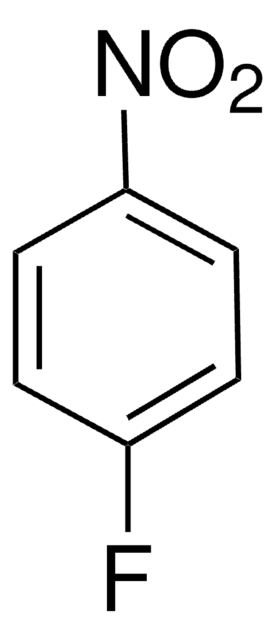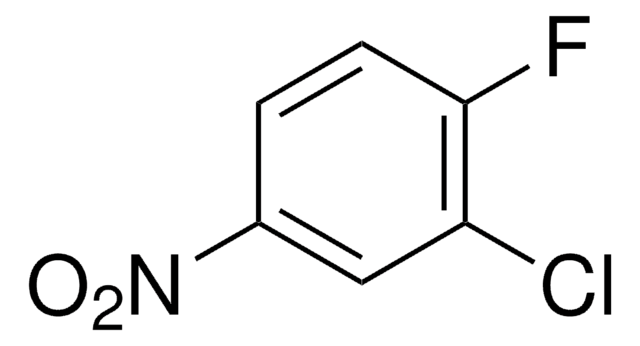About This Item
Recommended Products
vapor density
5.4 (vs air)
vapor pressure
0.04 mmHg ( 25 °C)
Assay
99%
form
solid
autoignition temp.
500 °F
expl. lim.
8.7 %
bp
246 °C (lit.)
mp
31-33 °C (lit.)
solubility
alcohol: soluble
benzene: soluble
diethyl ether: soluble
water: insoluble
density
1.348 g/mL at 25 °C (lit.)
SMILES string
[O-][N+](=O)c1ccccc1Cl
InChI
1S/C6H4ClNO2/c7-5-3-1-2-4-6(5)8(9)10/h1-4H
InChI key
BFCFYVKQTRLZHA-UHFFFAOYSA-N
Looking for similar products? Visit Product Comparison Guide
General description
Application
Signal Word
Danger
Hazard Statements
Precautionary Statements
Hazard Classifications
Acute Tox. 3 Dermal - Acute Tox. 3 Oral
Storage Class Code
6.1A - Combustible acute toxic Cat. 1 and 2 / very toxic hazardous materials
WGK
WGK 3
Flash Point(F)
258.8 °F - closed cup
Flash Point(C)
126 °C - closed cup
Personal Protective Equipment
Certificates of Analysis (COA)
Search for Certificates of Analysis (COA) by entering the products Lot/Batch Number. Lot and Batch Numbers can be found on a product’s label following the words ‘Lot’ or ‘Batch’.
Already Own This Product?
Find documentation for the products that you have recently purchased in the Document Library.
Customers Also Viewed
Our team of scientists has experience in all areas of research including Life Science, Material Science, Chemical Synthesis, Chromatography, Analytical and many others.
Contact Technical Service











